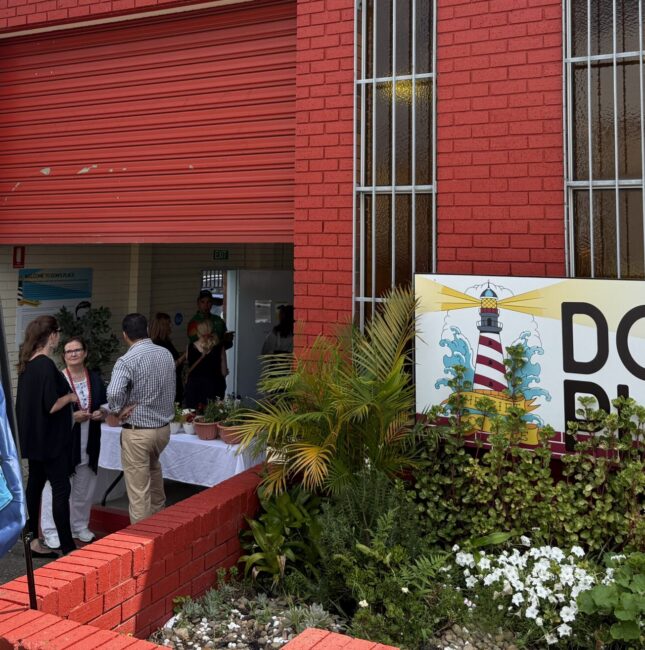Mediation leads to successful nesting arrangement
July 10, 2025
When Sylvia and Edward decided to separate, they never imagined they would end up in a successful nesting arrangement, where their children stay in the family home and the separated parents move in and out on a rotating basis. It was through mediation with CatholicCare that Sylvia and Edward were able to explore nesting as an option and, ultimately, to devise a parenting agreement to make it happen.
Home was a place of happiness and support for the couple’s children, Evie aged 6, and Nicholas aged 10. The children lived next door to both their best friends, and they had a gate built into the fence so they could move between houses as often as they liked. Family Dispute Resolution (FDR) with CatholicCare enabled Sylvia and Edward to come up with an option that involved minimal disruption for their children.
“We spent the first mediation session brainstorming how a nesting arrangement may work,” says Family Dispute Resolution Practitioner, Belinda. “The big advantage was that the kids could stay in their own house, which would soften the blow of the separation. It also had the advantage that the parents had 12 months to decide whether they really did want to separate permanently (which would require selling the family home) or whether there was a chance of reconciliation. It was agreed that the parents would rotate between the family home and a studio apartment.”
The initial challenge in this case was that studio apartments were not readily available, and the conflict in the family home was increasing. CatholicCare supported Sylvia and Edward to look at how they could live separately under one roof until a suitable apartment became available. Each parent took responsibility for looking after the children on different days and they each took the lead for different extra-curricular activities and household chores.
They were also supported to develop a joint narrative that could be used to explain the situation to their children. “The narrative included telling the children that the separation was not their fault, that they were loved by both parents, and that it was OK for them to feel a range of emotions,” says Belinda. “There is a risk for children of this age to fear abandonment and blame themselves for separation, but this was not the case for Evie and Nicholas because we proactively made this narrative for them.”
When the parties were able to secure a studio apartment several months later, CatholicCare scheduled a second mediation to allow the parents to work out the logistics of the “nesting” arrangement. The agreement included everything from the cleaning of the house to the stocking of the fridge. “The agreement had to be very specific to avoid arguments,” says Belinda. “You want to avoid resentment that can occur when one parent is walking into a house with no milk or muddy floors. Our parenting agreement even mentioned which parent would wash the sheets of which bed.”
FDR allowed Sylvia and Edward to separate in a way that was financially viable. Not only are studio apartments more affordable than second houses, but they were also able to avoid the expensive, stressful Court process. “The kids could see that their parents were trying to work things out, and we were able to get solutions pretty quickly,” says Belinda. “The alternative may have been years in Court and potentially tens of thousands of dollars wasted.”
To the credit of Sylvia and Edward, both parties were very child focused throughout the process, which contributed to the success of the mediation. “Sometimes in a mediation we need to support clients to get over the past and focus on the children, but we didn’t need to sell that at all here. Both parents were very much future focused and were thinking about their children the whole time,” says Belinda.
As life changes and challenges in their nesting arrangement arise, Sylvia and Edward know that mediation is a process that works for them. “As their kids get older and their needs change, they will probably be back,” says Belinda. For Sylvia and Edward, FDR has enabled them to separate in a way that respects and honours the needs of everyone in their household.
More news stories like this one
World Day of Social Justice – injustice isn’t accidental
World Day of Social Justice isn’t about slogans or good intentions. It’s about facing an uncomfortable truth - the systems we live within do not work equally for everyone, and pretending otherwise costs people their dignity, safety and hope.
Read More70 coffees for one great cause – Dom’s Place!
Eight Dom’s Place visitors recently completed barista training but the coffee cart isn’t just about serving coffee - it’s a practical way for them to develop pre-employment skills while contributing to the community.
Read MoreA brighter future for three sisters
Find out how Family Connect & Support can assist students like Kristen who juggle exams and caring for siblings amid challenges.
Read More


